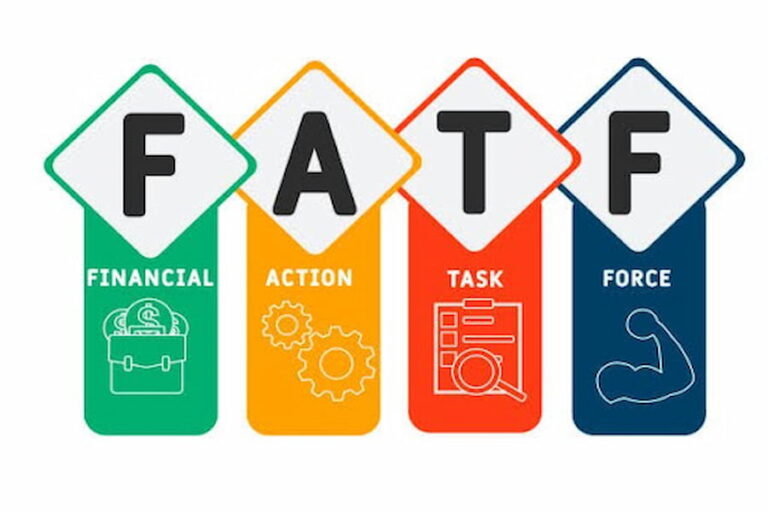The worldwide financial system faces significant and ever-changing challenges from both money laundering and terrorist financing. According to international data, global money laundering is predicted to reach between $800 billion and $2 trillion by 2023. These crimes jeopardize financial security and can finance actions that are harmful to the global community. The FATF has created a set of guidelines and standards that outline how nations must construct their AML/CTF systems to solve these issues. The organization called FATF was created in 1989 as an intergovernmental body primarily aimed at setting standards for the financial regulation of the member states.
The guidelines help the organization ensure that countries have developed sound measures to fight the incidences of financial crimes. The FATF has fifty member countries and forty regional organizations, making it an international body that affects the economic and financial policies of the world. This article will explain how FATF Standards operate, their effects on financial institutions, and how the FATF plenary is responsible for revising and implementing these guidelines.
What Are FATF Standards?
The FATF Standards are a set of rules which the Financial Action Task Force has formed. Originally founded in 1989, the FATF utilizes these standards to assist countries in developing sound processes against money laundering and terrorism financing. These standards apply to a number of areas as well as the roles and duties of financial institutions.
Concerning the measures that FATF employs against financial crimes, 40 Recommendations currently in force may be named as fundamental as of 2024. Standards are being established to address emerging issues like financial technology and criminality.
Bonus: Learn how new FATF Recommendations can help your nation improve its capacities for fighting against money laundering and ensuring the security of its financial sector.
The Role of the FATF Plenary
FATF plenary is a major event that is held three times a year. During which member countries analyze and develop the FATF Standards. The plenary finally evaluates countries’ compliance with these standards. In 2023, the FATF completed more than 20 mutual evaluations of countries implementing FATF Recommendations. Such a mechanism aids in ensuring that states are attending to deficiencies in the AML and CTF frameworks. Regarding new threats in the field of finances, the plenary also suggests new ideas for combatting them.
The FATF Grey List
The financial action task force grey list comprises countries that are on the special watch list. They have some strategic weaknesses in their financial systems. Myanmar and the nation of the Democratic Republic of the Congo are two of the 23 nations that are on the FATF grey list as of mid-2024. There is pressure on all of these nations to improve their AML and CTF policies. If they do not make these changes, they stand to be put on the FATF blacklist, which is certain to cause severe repercussions in their economy. The grey list is an effective mechanism for motivating countries to improve their financial legislation.
Financial Institutions and Compliance
Banks and other related financial institutions have a big role to play in the implementation of the FATF Standards. The rules governing AML and CTF are rigid for them. For instance, as of 2024, a financial institution is required to carry out a high level of scrutiny over schemes totaling $1,000. They also have to file reports on suspicious activities and more than 200,000 suspicious transaction reports from across the world in 2023. In this way, institutions try to avoid using their services for unlawful purposes. It is achieved through compliance with these financing regulations. There is also the factor of investing in strong technologies that enhance detection and prevention as well of financial crimes.
The Importance of FATF Recommendations
A wealth of information on CTF and AML safeguards may be found in the FATF Recommendations. Others include guidelines for client identification and verification, as well as additional protocols for record-keeping and reporting of questionable transactions. By 2023, the FATF revised its recommendations to meet adverse organized threats that have developed in the financial world from the use of cryptocurrencies for illicit actions. These updates assist the countries in developing their legal requirements. And make the financial institutions capable of dealing with new and emerging threats. The recommendations also support international cooperation to increase efforts in combating financial crimes.
How Do FATF Standards Impact Global Efforts?
Without the FATF Standards and Guidelines, the global fight against illicit financial transactions and terrorist financing cannot be victorious. They provide a strong plan that assists each country in fortifying its financial system. Currently, more than 200 countries and territories have implemented FATF recommendations to improve financial system protection around the world. When applying such standards, countries work towards improving the safety of the international financial environment. It makes the fight against financial crimes more united. And consistent due to the implementation of FATF Standards all across the globe.
Visit Classy World for more informative blogs.


